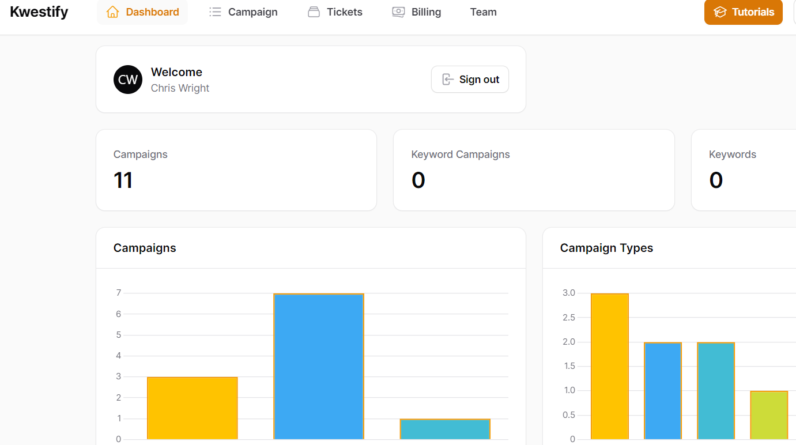
In this article, we will explore the exciting world of using social media platforms for affiliate marketing. You’ll discover how social media can be a powerful tool to boost your affiliate marketing efforts and increase your earnings. We’ll discuss the various platforms available and how to optimize your content for maximum engagement. By the end of this article, you will be equipped with the knowledge to effectively leverage social media for successful affiliate marketing campaigns. Let’s get started! Affiliate marketing has become a popular strategy for businesses to promote their products or services and increase their sales. This marketing technique involves partnering with individuals or organizations, known as affiliates, who promote the business’s offerings in exchange for a commission on each sale they generate.
Understanding the concept of affiliate marketing is key to effectively utilizing social media platforms for this purpose. In affiliate marketing, affiliates act as the middlemen between the business and the target audience. They utilize their own platforms, such as blogs, websites, or social media profiles, to promote the business’s products or services to their followers. By leveraging their existing audience, affiliates can expand the reach of the business, expose it to a larger audience, and increase the chances of making sales.
The role of affiliates in promoting products or services cannot be underestimated. Affiliates often have a strong influence over their audience and a trusted relationship with them. This influence and trust can be harnessed to persuade their followers to try out the products or services being promoted. Affiliates may utilize various strategies, such as creating engaging content, writing product reviews, or offering exclusive discounts, to entice their audience to make a purchase.
Benefits of Using Social Media Platforms for Affiliate Marketing
When it comes to affiliate marketing, social media platforms can be incredibly powerful tools. Here are some of the benefits of using social media platforms for affiliate marketing:
Expanding reach to a larger audience: Social media platforms are home to billions of active users. By utilizing these platforms for affiliate marketing, businesses can tap into this massive audience and significantly expand their reach. This increased exposure can lead to higher sales and increased brand awareness.
Leveraging the power of social media influencers: Social media platforms are filled with influential individuals who have developed a significant following. These social media influencers often have a strong impact on their audience’s purchasing decisions. By partnering with these influencers as affiliates, businesses can leverage their influence and tap into their dedicated fan base to promote their products or services.
Building trust and credibility through social proof: Social media platforms provide a space where users can share their opinions, reviews, and recommendations about products or services. Utilizing these platforms for affiliate marketing allows businesses to tap into this social proof. When affiliates promote a product or service on their social media platforms and share positive experiences, it adds a layer of credibility and trust, making it more likely for their followers to make a purchase.
Choosing the Right Social Media Platform
Selecting the right social media platform to carry out your affiliate marketing efforts is crucial. Here are some factors to consider when choosing the right platform:
Evaluating the target audience on different platforms: Different social media platforms attract different demographics and audiences. It is essential to understand your target audience and determine which platforms they are most active on. By choosing a social media platform that aligns with your target audience, you can ensure that your affiliate marketing efforts are reaching the right people.
Considering the platform’s advertising options: Each social media platform offers its own set of advertising options. Some platforms provide more advanced targeting capabilities, while others offer a range of ad formats and placements. It is important to consider which platform’s advertising options align with your goals and allow you to effectively promote your products or services.
Assessing competition and market saturation: It is important to evaluate the level of competition and market saturation on each social media platform. If a platform is overly saturated with similar products or services, it may be challenging to stand out and make an impact. However, if a platform has minimal competition, it may present an opportunity to gain a competitive advantage.
Setting Up an Affiliate Marketing Strategy on Social Media
Once you have chosen the right social media platform, it is crucial to develop a solid affiliate marketing strategy. Here are some steps to take when setting up your strategy:
Defining objectives and goals: Start by clearly defining your objectives and goals for your affiliate marketing efforts on social media. Are you aiming to increase sales, boost brand awareness, or expand your customer base? Clearly defining your objectives will help guide your strategy and ensure that you are taking the right actions to achieve your goals.
Identifying profitable affiliate programs: Research and identify affiliate programs that align with your business and have the potential to generate profitable results. Look for programs that offer competitive commission rates, high-quality products or services, and reliable tracking and reporting systems.
Developing engaging content and CTAs: Content is key when it comes to affiliate marketing on social media. Create compelling and engaging content that showcases the benefits and features of the products or services you are promoting. Incorporate clear and persuasive call-to-actions (CTAs) that encourage your audience to take action and make a purchase.
Building Your Social Media Following
To effectively carry out affiliate marketing on social media, it is important to have a strong and engaged following. Here are some tips for building your social media following:
Creating a compelling and consistent brand image: Establishing a strong and consistent brand image is essential for attracting and retaining followers. Make sure your social media profiles are visually appealing and reflect your brand identity. Use consistent colors, fonts, and imagery to create a cohesive and recognizable brand image.
Engaging with your followers through interactive content: Engage with your followers by creating interactive content that encourages them to participate and interact with your posts. Ask questions, run polls, or host giveaways to actively involve your audience. Respond to their comments and messages promptly to build a rapport and strengthen the relationship.
Utilizing hashtags and trending topics: Hashtags and trending topics can help increase the visibility of your posts and attract new followers. Research popular hashtags and incorporate them into your content to reach a wider audience. Additionally, stay updated with trending topics and incorporate them into your posts when relevant to your affiliate marketing efforts.
Effective Affiliate Marketing Techniques on Social Media
To maximize the success of your affiliate marketing efforts on social media, consider implementing the following techniques:
Native advertising and product reviews: Native advertising involves promoting products or services in a way that seamlessly integrates with the platform’s user experience. Create engaging and informative product reviews or tutorials that provide value to your audience while promoting the products or services. By providing valuable content, you can establish trust and increase the chances of making sales.
Promoting exclusive offers and discounts: Offer exclusive discounts or special offers to your social media followers to incentivize them to make a purchase. Partner with the business you are promoting as an affiliate to secure special deals or discounts for your audience. This exclusivity can create a sense of urgency and drive sales.
Collaborating with complementary brands or influencers: Collaborating with complementary brands or influencers can help expand your reach and expose your affiliate marketing efforts to a new audience. Identify brands or influencers that align with your target audience and explore collaboration opportunities, such as joint promotions or guest posts. By leveraging the existing audience of these brands or influencers, you can increase the visibility of your affiliate marketing efforts and drive more sales.
Analyzing and Optimizing Affiliate Marketing Performance
Analyzing and optimizing the performance of your affiliate marketing efforts is essential for long-term success. Here are some strategies to consider:
Using tracking tools to monitor conversions and click-through rates: Utilize tracking tools, such as affiliate tracking software or analytics platforms, to monitor the conversions and click-through rates of your affiliate marketing campaigns. This data will provide insights into which campaigns are performing well and which ones need improvement.
Testing different strategies and content formats: Experiment with different strategies and content formats to identify what works best for your audience. Test different types of content, such as images, videos, or infographics, and observe how your audience responds. Continuously refine and optimize your strategies based on the data and insights you gather.
Adjusting campaigns based on data-driven insights: Use the data and insights gathered from tracking your affiliate marketing campaigns to make informed adjustments. Identify trends or patterns in the data and adjust your targeting, messaging, or promotional tactics accordingly. Data-driven decision-making can help optimize your campaigns and increase their effectiveness.
Avoiding Common Pitfalls in Social Media Affiliate Marketing
While social media platforms provide immense opportunities for affiliate marketing, it is important to avoid common pitfalls that could hinder your success. Here are some pitfalls to be mindful of:
Spamming or excessive promotion: Bombarding your audience with constant promotions or spam-like content can be a major turn-off. Instead, focus on sharing valuable and informative content that adds value to your audience’s lives. Strike a balance between promotional content and non-promotional content to maintain the interest and engagement of your audience.
Failure to disclose affiliate relationships: It is essential to disclose your affiliate relationships to your audience transparently. The Federal Trade Commission (FTC) requires affiliates to disclose their relationship with a business when promoting its products or services. Failing to disclose this relationship can result in legal consequences and damage your reputation with your audience.
Neglecting to comply with platform guidelines: Each social media platform has its own set of guidelines and policies that users must adhere to. Familiarize yourself with these guidelines and ensure that your affiliate marketing efforts comply with them. Violating platform guidelines can result in penalties, such as content removal or account suspension.
Legal and Ethical Considerations in Affiliate Marketing on Social Media
Adhering to legal and ethical considerations is crucial for maintaining a positive reputation and complying with regulations. Here are some considerations to keep in mind:
Understanding FTC regulations and disclosure requirements: Familiarize yourself with the FTC regulations and disclosure requirements for affiliate marketing on social media. Disclose your affiliate relationships clearly and conspicuously to ensure transparency and compliance. Use hashtags, phrases like “affiliate link,” or a dedicated disclosure statement to make your relationship transparent to your audience.
Respecting user privacy and data protection: When carrying out affiliate marketing on social media, it is important to respect user privacy and protect their personal information. Ensure that you are compliant with data protection laws, such as the General Data Protection Regulation (GDPR), and obtain appropriate consent when collecting or using user data.
Maintaining transparency and authenticity: Transparency and authenticity are key to building trust with your audience. Be transparent about your affiliations and only promote products or services that you genuinely believe in and think will benefit your audience. Maintaining transparency and authenticity will help build and maintain a loyal and engaged audience.
Conclusion
Utilizing social media platforms for affiliate marketing can greatly enhance sales and brand awareness. By understanding the concept of affiliate marketing, selecting the right social media platform, and developing a solid strategy, businesses can effectively tap into the power of social media platforms. However, it is essential to navigate the legal and ethical considerations, avoid common pitfalls, and stay updated with regulations and platform guidelines. By harnessing the potential of social media platforms and implementing effective affiliate marketing techniques, businesses can drive affiliate marketing success and achieve their objectives.






